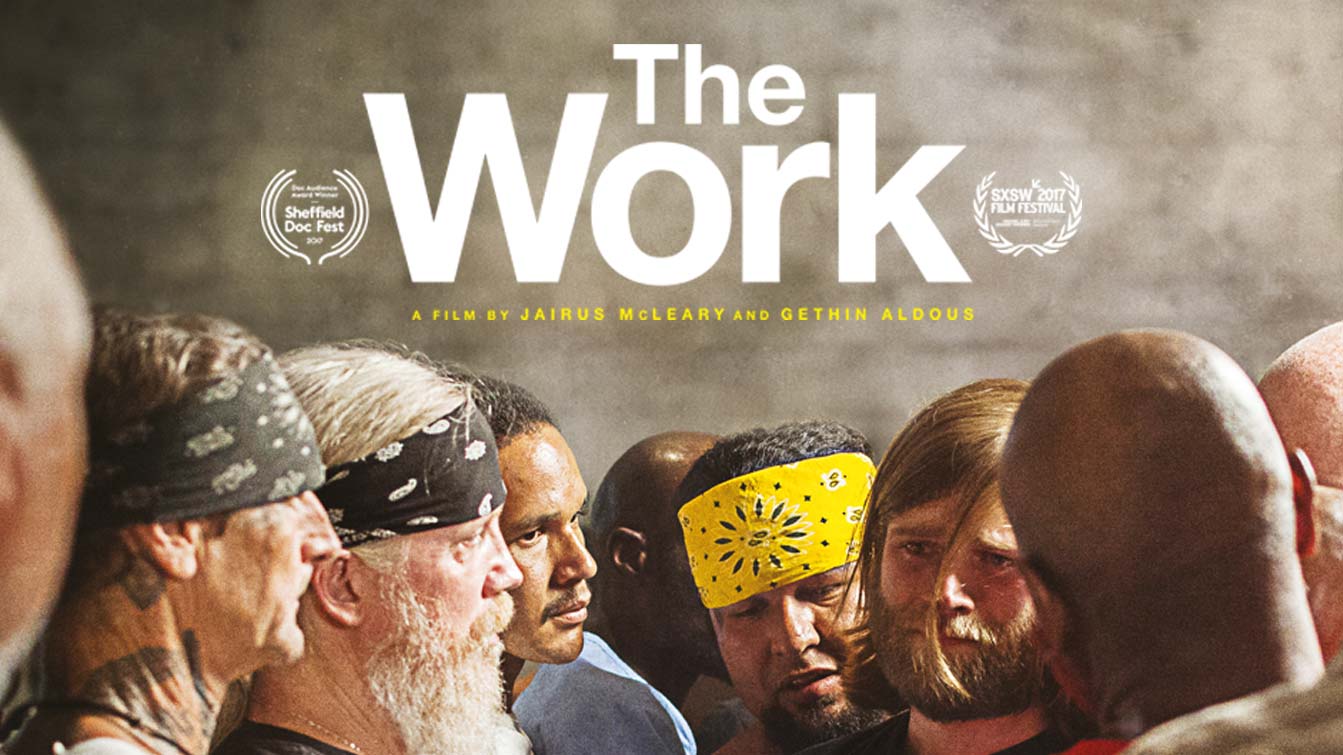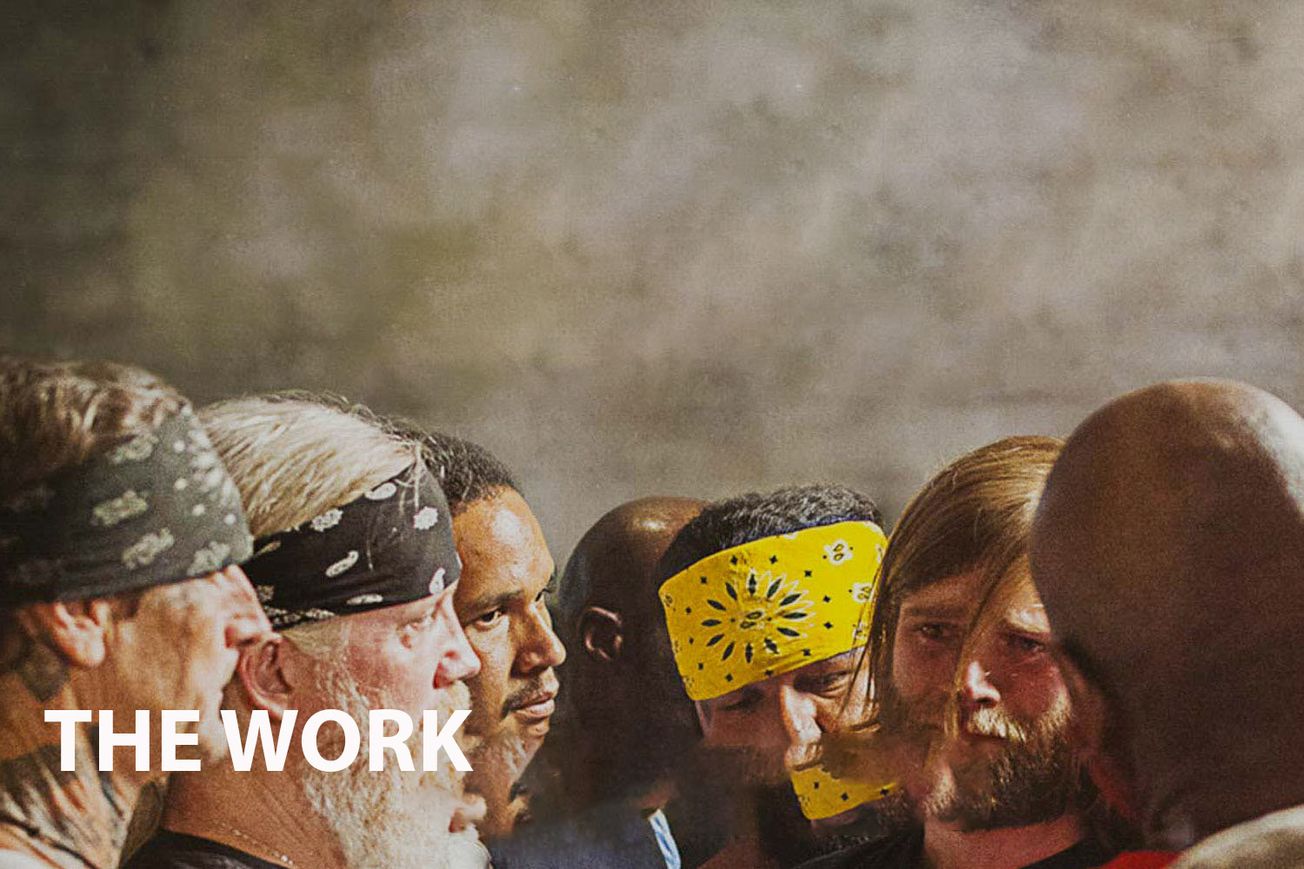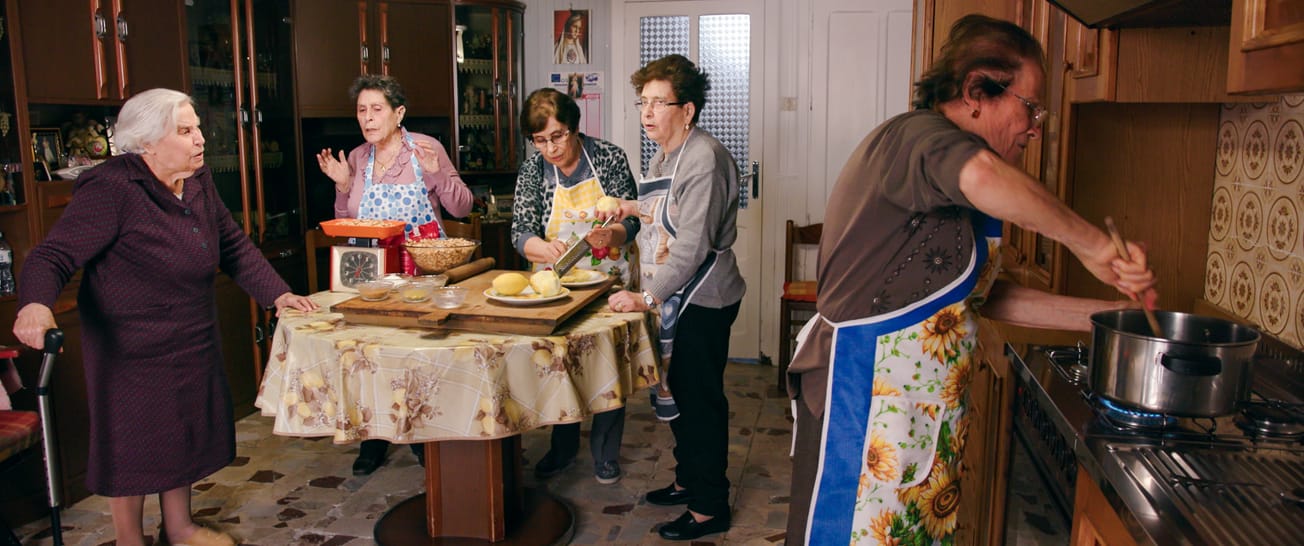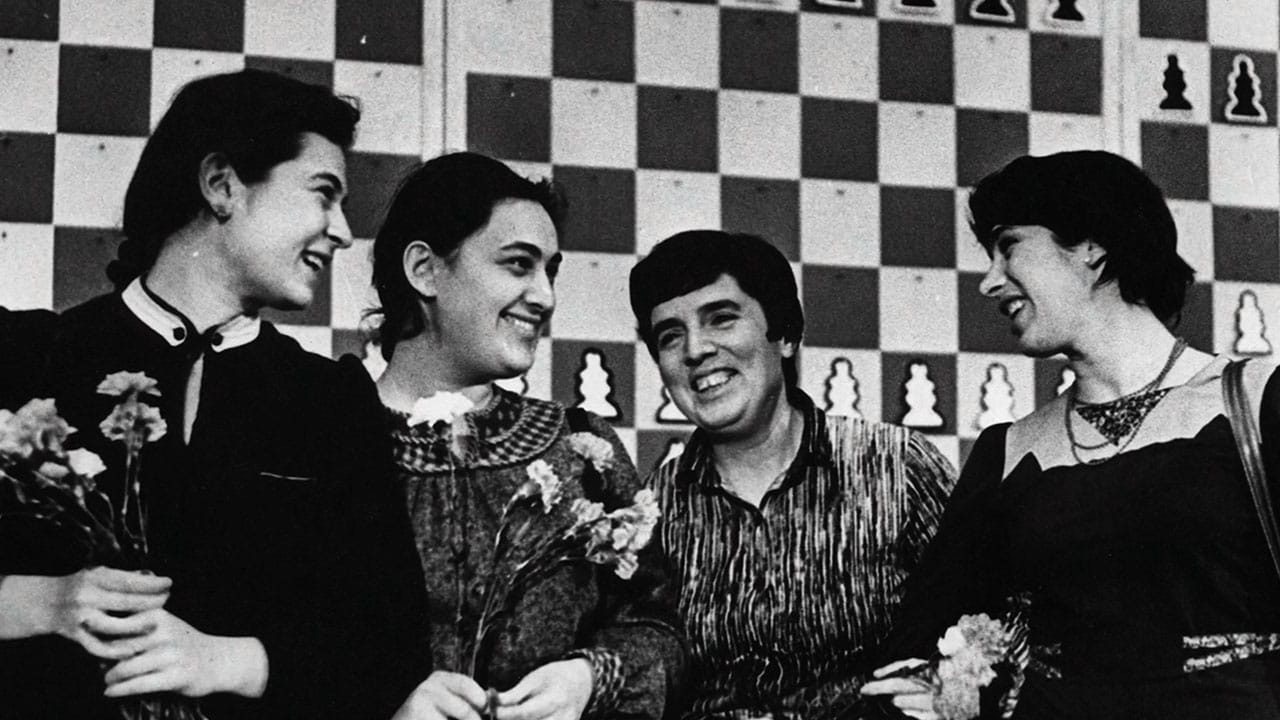Keywords: Folsom Prison, Rehabilitation, Transformation, Group Therapy, Emotional Vulnerability, Criminal Justice Reform
Introduction
"The Work," directed by Jairus McLeary and Gethin Aldous, is a 2017 documentary that peers into the four-day intensive group therapy sessions inside Folsom Prison. This powerful documentary offers an intimate look at rehabilitation and human transformation that challenges our preconceptions.
Synopsis
The film follows three non-inmate men who voluntarily join the intense group therapy sessions inside Folsom Prison. Over four days, these men and the serving convicts they interact with undergo profound emotional transformations that transcend what we commonly understand as rehabilitation.
More Film Analysis
Analysis
"The Work" takes an observational approach, allowing the raw, unfiltered emotions and interactions between the participants to unfold naturally. The research is thorough, deeply exploring the transformative power of vulnerability and empathy within a prison environment.
Historical and Factual Context
Folsom Prison, one of the oldest prisons in the US, has been conducting these group therapy sessions for inmates since the late 90s, with the aim of reducing recidivism through emotional growth and understanding.
Key themes in the film
- Authenticity and vulnerability: The participants' willingness to expose their raw emotions and inner struggles
- Rehabilitation through emotional exploration: The transformative power of understanding and reconciling with one’s past
- Empathy and understanding: The shared human experiences that bridge the gap between convicts and civilians
Film Comparisons
Unlike traditional prison documentaries that focus on the penal system, "The Work" shares a similar empathetic lens with documentaries like "The Dhamma Brothers," focusing on personal transformation within prison walls.
Noteworthy Moments
The raw, unfiltered emotional breakdowns and subsequent breakthroughs of both the inmates and civilians are the film's most poignant moments, revealing the power of empathy and understanding.
Reviews
"The Work" has been critically acclaimed for its raw portrayal of emotional therapy and rehabilitation in prison. Variety called it “a rare documentary that's impossible to forget."
Conclusion
"The Work" is a deeply moving exploration of human transformation that challenges preconceived notions about rehabilitation. It's a must-watch for anyone interested in criminal justice reform, psychology, or human resilience.
More film information:
FILM SUMMARY
- IMDB score: 7.8
- Rotten Tomatoes score: 100%
- Metacritic score: 84
- Film festival awards: 5 wins & 14 nominations
PERSONALITIES
- Jairus McLeary: Director
- Gethin Aldous: Director
- Participants: A mix of serving convicts and civilians, bravely sharing their emotional journeys
LOCATIONS
- Folsom Prison: The setting for the intense group therapy sessions
Key Questions Raised by the Film
- How can we redefine rehabilitation in the prison system?
- What is the role of emotional vulnerability in personal transformation?
- Can empathy and understanding bridge the gap between convicts and civilians?
Links for Further Exploration
I wonder what the film would be in another art form



- A famous book, it would be "Man's Search for Meaning" by Viktor Frankl - both explore the power of personal transformation amidst harsh circumstances.
- A famous song, it would be "Hurt" by Johnny Cash - a raw and emotional reflection on pain and regret.
- A famous piece of art, it would be Edvard Munch's "The Scream" - a stark depiction of raw emotion.
- A famous celebrity, it would be Robert Downey Jr. - someone who has undergone significant personal transformation.
- A colour, it would be grey - symbolising the bleak prison environment, but also the potential for transformation.
- A music style, it would be blues - a genre known for expressing raw emotions and life experiences.










